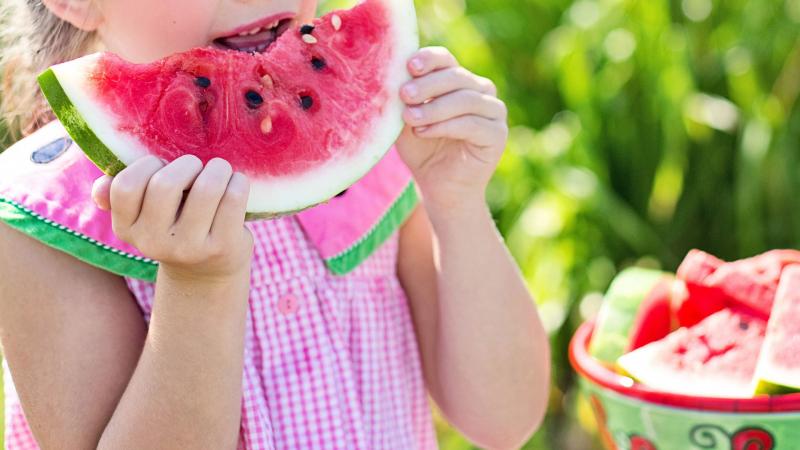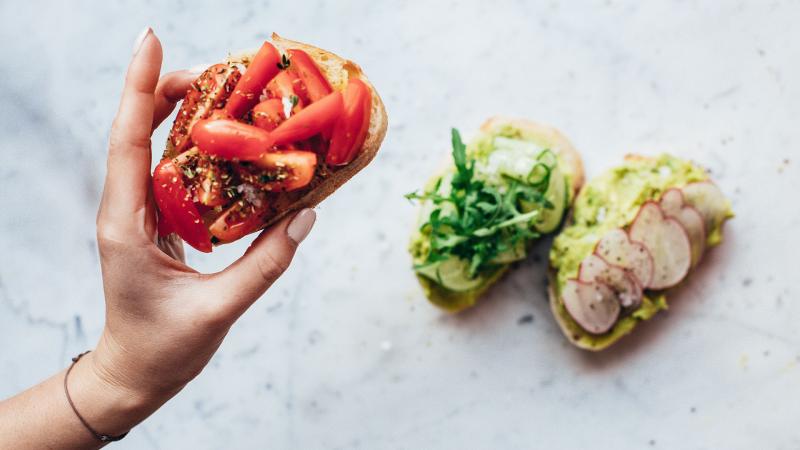Holidays are for fun, taking a break from the routine and relaxing the rules, especially after a year that brought unprecedented challenge. Who can blame us for wanting to indulge in a few dietary treats and shortcuts to make mealtimes easier? But if COVID and the busyness of the Christmas/New Year period has seen your family’s nutrition standards go a little off the rails, there are some easy ways to get everyone’s diet back on track for 2021. Here are eight ways to reboot your family’s diet and get set for healthier eating.

While it can seem appealing to start a new healthy eating regime at the start of a new year, the beginning of the month, or when children go back to school, the truth is, there’s no better time to start good habits than right now. With a proven correlation between what we eat and overall health and wellbeing, you’ll start to notice the benefits of a healthier diet after just one nutritious meal.
Even if you’ve indulged in a holiday ice-cream or dessert, resolve to make your next restaurant or home-cooked meal a healthy one. If you have been away over the festive period, plan a couple of easy and healthy meals on the way home, or shop online to arrange for healthy food to arrive at your door to coincide with your return home.

With sugar added to so many drinks and products, it can be difficult to keep track of just how much sugar you are consuming each day. Fizzy drinks, fruit juice, energy and sports drinks, vitamin waters, and tea and coffee can easily tip us over the recommended daily limit for sugar consumption.
It’s estimated the average Aussie adult has around 14 teaspoons of free sugars a day. Teenage boys are said to consume the most sugar – with some consuming a whopping 38 teaspoons of free sugars per day! That’s well above the World Health Organisation recommendation of nine teaspoons of sugar for men, six for women and three for children.
Try to reach for water as often as possible and resist the marketing push to buy energy drinks and soft drinks which have little nutritional value.

While special occasions often involve alcohol, too much of a good thing can add calories to the diet, affect mental health, make us less likely to want to exercise and increase the risk of a host of diseases. Try cutting out alcohol for a few weeks, or at least aim to have a few alcohol-free days each week. Your body will thank you.

Children will often pester parents for sweet treats but giving kids too many biscuits and sugary snacks means they get too much of their total daily energy from low–nutrient unhealthy foods.
Dietitian Kate Di Prima says the easiest way to avoid too many calories and sugar from cakes, sweets and unhealthy snacks is to stay away from the supermarket aisles that sell them.
“As a parent and dietitian, I know that kids can try to wear you down with pester power,” Kate says.
“But if you keep buying the holiday treat foods every single week and you put them in the cupboard or the fridge, you and your family will eat them, because they are there and they are so convenient.
“The new year is a good time to start reintroducing the habit of filling the fruit bowl and placing it in a prominent place on the kitchen bench so that the whole family can grab a piece of fruit throughout the day.”

We all tend to eat a bit more over the Christmas-New Year period. The weeks of unstructured time can seem endless and the fridge is only a short walk away. Sometimes it’s hard to figure out if kids are hungry or just bored. With the back-to-school routine just around the corner, it’s a good time to start thinking about spacing out eating times to three balanced meals a day.
Try to snack on healthy treats in between meals to help manage hunger and maintain energy levels and concentration.
You can find some great healthy snack ideas here.

According to the Chief Health Officer’s latest report on the health of Queenslanders, the proportion of children meeting recommended vegetable consumption has declined by almost a third since 2013. Only 8 per cent adults and 4.6 per cent of children are eating enough veggies each day.
Kate Di Prima says if you put more vegetables and salad on your plate, there will be less room for other parts of the meal that are higher in calories. You will still get a variety of foods and food groups, but fewer calories overall.
She also recommends using a smaller side plate to help bring servings back to a healthier size and reduce the kilos after the festive season.

While planning your meals for the week might seem like a chore, in the long run, this simple exercise can save money and help you make much healthier choices. Kate suggests using a chalk or whiteboard to write the planned meal beside each day of the week. That way you know what ingredients to buy and what meat or fish needs to be taken out of the fridge for defrosting in the morning. This simple preparation exercise can eliminate a lot of stress in the evenings and makes it less likely that you’ll be calling for takeaway because there isn’t any food in the house!

As life becomes busier, it’s tempting to eat dinner on the run, at the kitchen bench, in front of the TV or even in front of computer screens. While it can be a major challenge to get children to come to the table for dinner, establishing a familiar routine of sitting around the dining table to eat, has numerous benefits. Not only does it create moments of family bonding and togetherness, research shows children who eat at the dinner table perform better academically, have improved mental health and conversational skills, and adopt healthier eating habits.
But make sure the TV is turned off during dinner. One American study found kindergarten children who watched TV during dinner were more likely to be overweight by the time they were in the third grade.
For more nutrition tips listen to the Growing Happy Little Veggie-mites! podcast with Kate Di Prima here, or find us on your favourite podcast platforms.